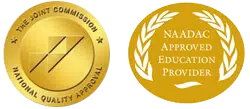- 21
- March '23
What Does Cross Addiction Mean?
Cross addiction can often happen when people try out new drugs. Research shows that people who already struggle with addiction to one type of substance are of increased risk of becoming dependent on another one. As cross addiction makes can make it harder to manage symptoms or get sober, it should be taken seriously and prevented whenever […]
[...]Share



